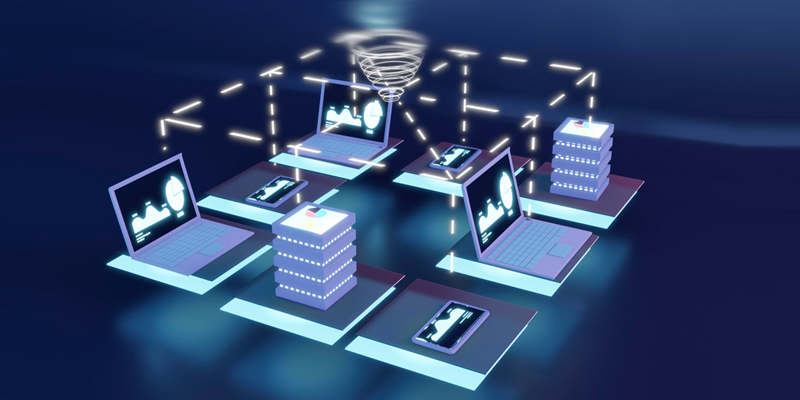How Blockchain is Revolutionizing Supply Chain Transparency in the Web 3.0 Era
In today’s global economy, supply chains serve as the backbone of business operations. Yet despite all the technological advancements in the last two decades, many companies still rely on outdated, opaque systems built for the Web 2.0 era — centralized, limited in visibility, and prone to human error.
Supply Chain Pain Points in the Web 2.0 World
The top challenges with traditional supply chains include:
- Data Fragmentation: Each party (supplier, manufacturer, transporter, retailer) keeps its separate records.
- Slow Dispute Resolution: When things go wrong, finding out what went wrong and where it happened can take days.
- Manual Documentation: Bills of lading, compliance certificates, and customs documents are often paper-based.
- High Risk of Counterfeit Products: Especially in pharma, luxury goods, and electronics.
- Limited Consumer Trust: Customers increasingly demand to know where products came from and how they were made.
A 2023 report by PwC revealed that 61% of supply chain leaders said the lack of end-to-end visibility is their biggest operational bottleneck.
What is Web 3.0 and Why It’s a Game-Changer for Supply Chains
- Verified (timestamped & recorded immutably)
- Shared securely across the network
- Trusted by all parties without intermediaries
Real-World Companies Using Blockchain in Supply Chain Management
Walmart:
Launched a blockchain pilot with IBM’s Food Trust Network to track produce from farm to shelf.
Result: Reduced product tracing time from 7 days to 2.2 seconds.
De Beers:
Tracks the entire journey of a diamond — from mine to retailer — to ensure ethical sourcing and eliminate blood diamonds.
FedEx:
Maersk + IBM (TradeLens):
Provenance.org:
These examples show that blockchain development services are already helping companies cut costs, increase trust, and ensure full accountability.
How Blockchain Improves Supply Chain Transparency
1. End-to-End Product Traceability
2. Smart Contracts for Automation
3. Improved Supplier Accountability
4. Fraud Prevention & Regulatory Compliance
5. Consumer Trust & Sustainability
6. Faster Dispute Resolution
Why Supply Chain Leaders Are Moving Toward Web 3.0
According to Deloitte’s Global Blockchain Survey, 83% of supply chain executives believe blockchain will be “critically important” to their organization in the next 5 years.
The reasons?
- Better data = better decisions
- Automation = cost savings
- Security = reduced risks and liability
- Transparency = consumer confidence
And now, with advancements in Layer 2 solutions (like Polygon), blockchain can support scalable, high-speed operations across millions of daily events.
How Quicksoftec Helps Supply Chain Businesses Build Blockchain-Ready Systems
At Quicksoftec, we don’t just build blockchain applications — we design enterprise-grade supply chain ecosystems that are secure, scalable, and simple to use.
Whether you’re a logistics company, manufacturer, or multi-tiered supplier, we help you modernize your operations using:
Our Blockchain Development Services for Supply Chains:
- Smart Contract Development – Automate processes, settlements, and compliance approvals
- Custom dApp Development – Build decentralized supply chain portals accessible by all stakeholders
- Tokenization of Assets – Assign blockchain-based IDs to containers, shipments, or batches
- Blockchain Integration with ERP – SAP, Oracle, Salesforce… you name it, we’ll link it
- Private/Public Chain Solutions – Ethereum, Hyperledger, Solana, Polygon, and more
- Tracking + Analytics Dashboards – Custom dashboards to view real-time product flow
A Quick Example: From Chaos to Clarity
Imagine a global electronics brand facing consistent counterfeit returns from retail partners. After integrating a blockchain-based tracking system developed by Quicksoftec:
- Each product now carries a verifiable digital tag
- Distribution centers verify authenticity at every checkpoint
- Retailers can trace defects back to manufacturing lots
- Counterfeiting drops by 88% in the first quarter
- Consumer complaints fall by 61%
- Brand trust scores go up by 27% in post-purchase surveys
This is not fiction. This is blockchain in action — and it’s only the beginning.
Is Blockchain Right for Your Supply Chain?
- Multi-tier supplier relationships
- Compliance-heavy operations (pharma, food, aerospace)
- Complex documentation and customs workflows
- High-value products are vulnerable to fraud
- ESG and sustainability reporting
Ready for a Transparent Supply Chain?
As the world transitions from Web 2.0 to Web 3.0, the companies that embrace transparency and decentralization will be the ones to lead the future of global trade.
Blockchain isn’t just about cryptocurrency. It’s about building trust at scale — and for supply chains, that’s the single most valuable currency.

